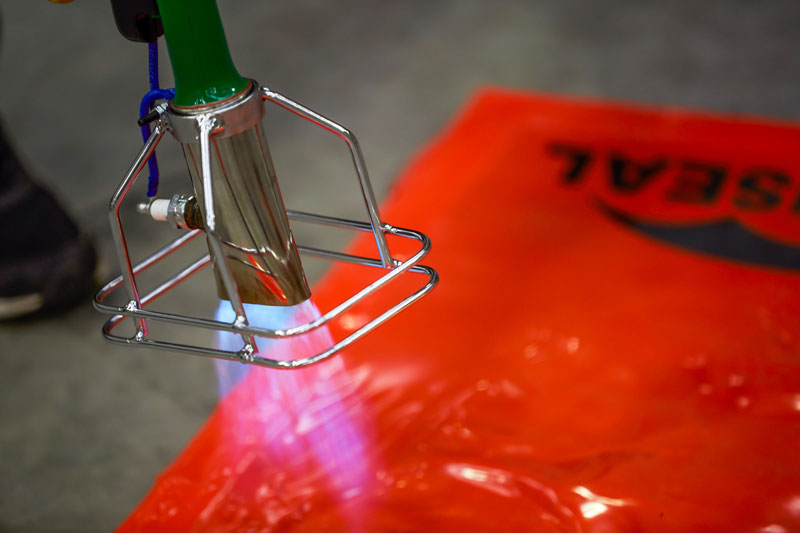Adelaide All-Trades (AAT), a leading provider of repairs for insured properties, has switched to using Stormseal, a smart alternative to tarpaulins and an Australian innovation, to protect storm-damaged properties. AAT is the first accredited Stormseal installer in South Australia.
‘We have the biggest emergency response team in South Australia, and we pride ourselves on using cutting edge technology to rapidly make properties safe and restore clients’ peace of mind,’ says Ryan Hage, Manager of AAT. ‘As soon as I heard about Stormseal, I knew we should be using it.’
Stormseal is a strong polyethylene film that heat shrinks to cover a damaged roof or wall, wrapping tightly and resisting wind, rain and hail until permanent repairs can be made. Unlike tarpaulins, Stormseal provides cost-effective, lasting weather protection.
‘Stormseal is a fantastic product that we will use after storms and other damaging events. It’s especially good in difficult access situations,’ Mr Hage says. ‘The best thing is that it stays put – we won’t have to go back to fix any more flapping or leaking tarps. Stormseal provides secure protection for up to two years.
‘I leapt at the chance to train two of our crew as Stormseal installers, and flew them to Melbourne for the one-day course. The training course covers all aspects of the Stormseal product and the installation technique. Our guys found it excellent.
‘We’ve purchased the Stormseal toolkit, which is well designed,’ says Mr Hage. ‘We can carry it on any truck or ute and it contains all the equipment necessary for installation. We just roll out the Stormseal film and cut it to fit, onsite.’
‘Stormseal’s complete, quality assured system includes accredited installer training, online ordering and national distribution,’ says Matthew Lennox, inventor and Managing Director of Stormseal.
‘Severe storms are becoming more frequent, damaging property, traumatising residents, stretching emergency resources and costing insurance companies billions,’ Mr Lennox explains. ‘The insurers and builders who have witnessed the potential of Stormseal know that it will cut their costs significantly and keep insured properties safe from further damage, which also keeps policyholders happy.’
Stormseal has been used to protect hundreds of damaged properties in NSW, Queensland and Victoria. The Australian company has also established operations in Europe and the US.
‘We’re keen to raise awareness of Stormseal in South Australia.’ Mr Hage says. ‘We want insurance companies, property owners and builders to understand that there is a superior alternative to tarps. Stormseal is ideal for rapid response and cost-effective resilience in the face of natural disasters.’





